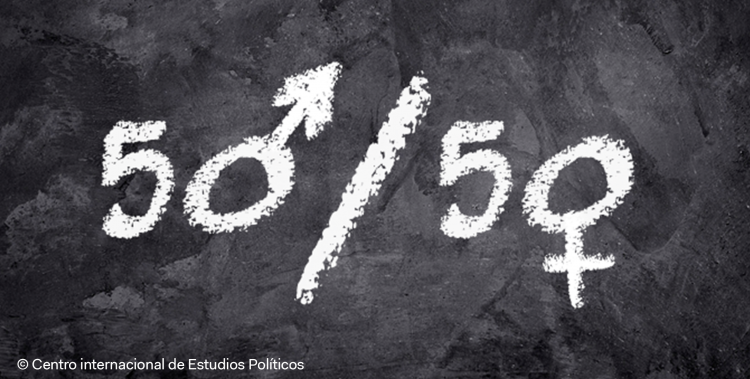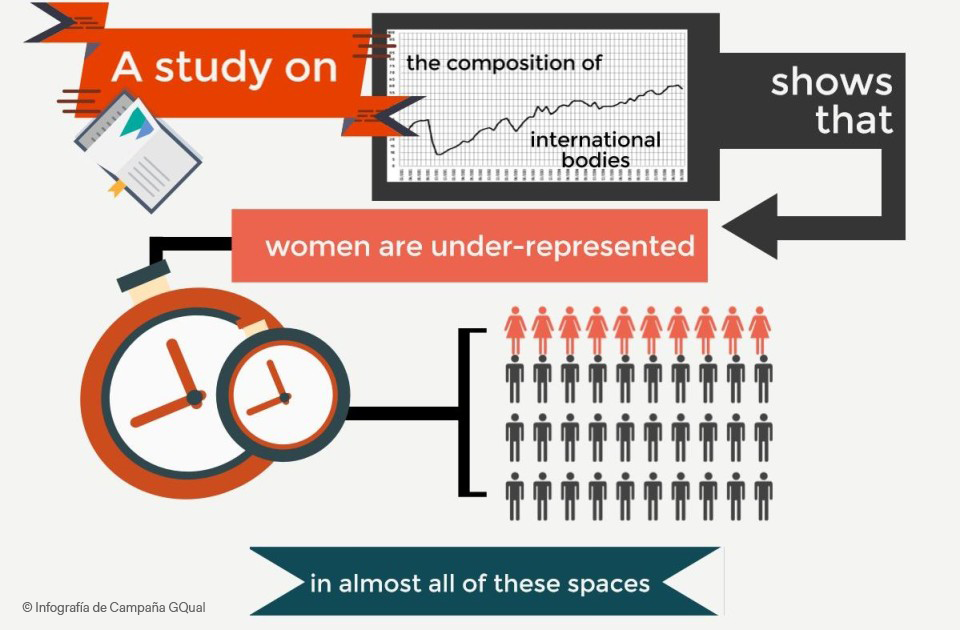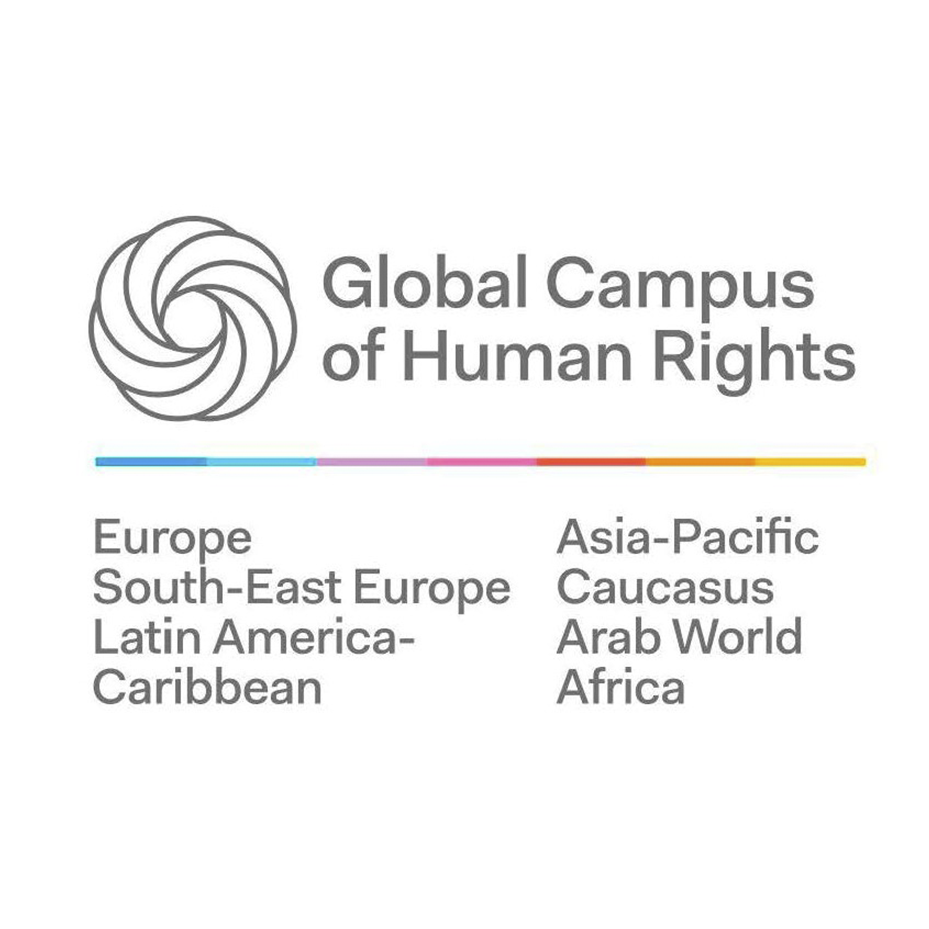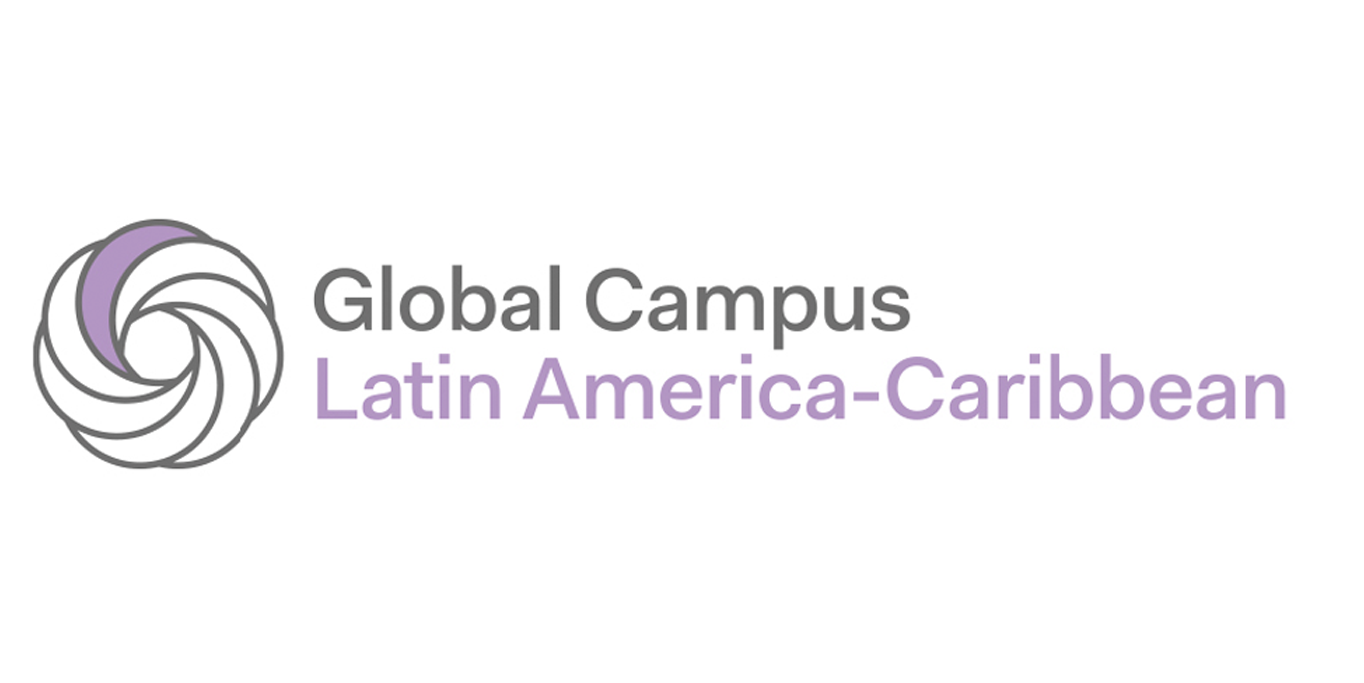
Aire fresco en la Comisión Interamericana de Derechos Humanos – Nueva directiva y nueva composición / A breath of fresh air for the Inter-American Commission on Human Rights: New board of officers and new composition
On 21/03/2018 by adminA través de su cuenta de twitter[1], la CIDH dio a conocer que es la primera vez en sus 59 años de existencia, que se dan tres circunstancias en simultáneo: (i) es presidida por una mujer, (ii) tiene mayoría de mujeres en su Directiva y (iii) en su composición (4 de 7 integrantes). Cada una de estas condiciones se ha dado anteriormente de manera singular e incluso combinándose de a pares, pero nunca antes habían ocurrido las tres al mismo tiempo. Finalmente en febrero de 2018, en el marco del 167° período de sesiones celebrado en la ciudad de Bogotá, la CIDH eligió[2] a la Comisionada Margarette Macaulay como Presidenta y a la Comisionada Esmeralda Arosemena de Troitiño como Primera Vicepresidenta para el período 2018-2019, quedando como Segundo Vicepresidente el colombiano Ernesto Luis Vargas Silva.
La Comisión se ha pronunciado a favor de las cuotas de género en los poderes estatales, en respuesta a una consulta efectuada por la CIM[3] y en una solución amistosa[4] acordada con el Estado argentino (2001), demostrando que la representación de las mujeres debe interpretarse en el marco del derecho a la participación política protegida por los instrumentos interamericanos. Con relación al balance de género en su propia composición, la elección de miembros y de autoridades del 2018 revierte la tendencia negativa, antes del aniversario 60° de la CIDH. Su nueva composición[5] es el escenario en el que se materializa este importante avance de las mujeres en el acceso a espacios de toma de decisión en el Sistema Interamericano, y constituye uno de los logros visibles de la insistente demanda desplegada por la sociedad civil, litigantes y académicos/as para alcanzar la paridad de género en las cortes y en los organismos internacionales. La campaña GQual[6] canalizó el mayor número de adhesiones y recolectó preocupante datos[7] sobre la composición por sexo de 91 tribunales y organismos internacionales.

Con relación al Sistema Interamericano y la paridad de género, en los últimos años la sociedad civil promovió el armado de diversas instancias de rendición de cuentas sobre la integración de la CIDH en las que las y los candidatos propuestos por los Estados debieron responder sobre sus antecedentes, objetivos y propuestas frente a las organizaciones y las delegaciones permanentes ante la Asamblea General[8]. También paneles de expertos y expertas, evaluaron sus conocimientos sobre la aplicación de perspectivas de género como un criterio de selección para integrar la CIDH en el entendimiento de que aquello puede impactar positivamente en el análisis de las peticiones que llegan al Sistema, lo cual fue efectivamente identificado en las trayectorias de las entonces candidatas Macauley, Arosemena de Troitiño[9] y Elizabeth Odio Benito (hoy la única Jueza de la Corte IDH) [10]. Los foros permitieron impulsar el debate sobre el balance de género en el seno de la CIDH y, al mismo tiempo, pusieron la lupa sobre la falta de transparencia de las candidaturas elevadas por los Estados, a nivel interno, y de los procesos electivos a nivel regional. Todo ello en conjunto hace a la legitimidad del órgano y se relaciona con las barreras formales e informales que pueden encontrar las mujeres en el interior de los Estados para integrar la lista de candidaturas y que explican, en parte, su notoria ausencia en los cargos directivos de los organismos internacionales.
La discusión sobre la paridad de género no es una inquietud meramente numérica y por ello la nueva composición de la CIDH, que motiva esta contribución, es tan relevante. Una composición diversa y verdaderamente representativa de la población americana contribuye a fortalecer la legitimidad de sus decisiones cuyos efectos se extienden a las mujeres. Ello sin perder de vista otros criterios de representatividad también importantes como el geográfico o el étnico. Nienke Grossman, Profesora de Derecho Internacional en la Universidad de Baltimore (e integrante del Panel de Expertos/as en 2017) señala en una entrevista[11] un punto aun poco debatido y que brota espontáneamente al compás del reclamo por paridad en los organismos internacionales como la CIDH: ¿por qué debe justificarse la presencia de las mujeres pero se da por hecho y es correcta la presencia de los varones en los espacios de toma de decisiones? Estas reflexiones demuestran que hoy ya no es posible que la ausencia de mujeres en la arena internacional pase desapercibida.
Celeste Novelli
Abogada (UBA). Magíster en Derechos Humanos y Democratización para América Latina (CIEP/UNSAM). Becaria doctoral (CONICET).
A breath of fresh air for the Inter-American Commission on Human Rights: New board of officers and new composition
The Inter-American Commission on Human Rights (IACHR) recently informed on Twitter[1] that it is the first time in its 59 years of existence that there are three concurrent circumstances: (i) it is chaired by a woman, (ii) two out of three members of the board of officers are women, and (iii) women are also a majority of its composition (four out of seven Commissioners). Although these conditions had been present individually –or even dually— in previous compositions of the Commission, the three of them had never coincided until last month. In February 2018, during the 167 Period of Sessions held in Bogota, the IACHR elected[2] Margarette May Macaulay as President, Esmeralda Arosemena de Troitiño as First Vice-President, and Luis Ernesto Vargas Silva as Second Vice-President for the 2018-2019 period.
The Inter-American Commission has endorsed use of quotas to promote gender balance in the branches of government in response to a consultation launched by the Inter-American Commission of Women (CIM)[3] as well as in a friendly settlement agreement with Argentina (2001)[4], thus demonstrating that women’s political representation must be interpreted as part of the right to participate in public and political life as enshrined in Inter-American human rights instruments. In connection with gender balance within its own composition, this election of members and officials contributes to the reversal of a propensity towards female under-representation, ahead of the IACHR´s 60th anniversary. Indeed, this new composition[5] is the scenario for this milestone in access to decision-making roles by women in the Inter-American System. It is also an outcome attributable to the efforts of representatives from civil society, litigation teams and academia that have long claimed for gender parity in international courts and monitoring bodies. Among these initiatives the GQual campaign[6] collected concerning data[7] in connection with the lack of parity in the current composition of 91 international bodies.
In the Inter-American System, during the last few years, civil society organisations promoted the creation of external accountability mechanisms on the election of IACHR members where candidates nominated by member States were interviewed by civil society organizations and Permanent OAS Missions[8] in connection with their background, views and objectives. Independent Panels have also assessed the candidates´ knowledge on gender perspective as a relevant selection criterion for the Inter-American Commission with the understanding that this may have a positive impact in the study of individual complaints, as it was the case with then candidates and current Commissioners Macaulay and Arosemena de Troitiño[9] and Judge Elizabeth Odio Benito (since 2016 only female judge in the Inter-American Court).[10] These discussions gave impetus to the gender balance issue at the IACHR and magnified the scrutiny on the lack of transparency of national nominations by States and regional elections. These formal and informal barriers –at the core of institutional legitimacy— faced at domestic level by women who seek to be nominated as candidates, partly explain their notorious absence from decision-making in international organizations.
Gender parity is not merely an issue of numbers and that is why the theme of this contribution on the news on the new composition of the Inter-American Commission is so relevant. A diverse composition –representing the peoples of the Americas— will contribute to strengthening the legitimacy of IACHR´s decisions with extended impact on women, while keeping in mind other important criteria such as geographical and ethnic representation. In an recent interview[11] Nienke Grossman –Lecturer of International Law at Baltimore University and former member of the 2017 Independent Panel— raised an issue not enough explored when she explained that women often have to justify their participation in decision-making while men´s is taken for granted. It is clear that time’s up also for lack of gender parity in the international sphere and that it should not go unnoticed.
By Celeste Novelli
Lawyer (University of Buenos Aires). Master in Human Rights and Democratization in Latin America and the Caribbean (UNSAM/CIEP). Doctoral Fellow (CONICET).
[1] https://twitter.com/CIDH/status/967404934386905088
[2] IACHR, Press Release 34/2018, February 23, 2018: http://www.oas.org/en/iachr/media_center/PReleases/2018/034.asp
[3] IACHR, Annual Report, 1999, Chapter VI, Special studies, “Considerations regarding the compatibility of affirmative action measures designed to promote the political Participation of women with the principles of equality and non-discrimination”, http://www.cidh.org/annualrep/99eng/Chapter6.htm.
[4] IACHR, Friendly Settlement, Report 103/01, Case 11.307, María Merciadri de Morini (Argentina): http://cidh.org/annualrep/2001eng/Argentina11307.htm.
[5] http://www.oas.org/es/cidh/mandato/composicion.asp
[6] GQual, Campaign for gender parity in international representation: http://www.gqualcampaign.org/about-gqual/
[7] http://www.gqualcampaign.org/gquals-jobs-board/
[8] Permanent Council Interviews Candidates for IACHR Membership, May 05, 2017: https://www.youtube.com/watch?v=i12lUogwL-Y
[9] Final report of the Independent panel for the election of the Comissioners to the IACHR (in Spanish only), June 05, 2017: https://www.cejil.org/sites/default/files/iachr_panel_2017_final_report_esp.pdf
[10] Final report of the Independent panel for the election of the Comissioners to the IACHR, 02.06.2015: https://www.opensocietyfoundations.org/sites/default/files/iachr-panel-report-eng-20150603.pdf
[11] “It’s not about women’s issues”, Interview to Nienke Grossman, April 17, 2017: https://voelkerrechtsblog.org/its-not-about-women-issues/
[1] https://twitter.com/CIDH/status/967404934386905088
[2] CIDH, Comunicado de Prensa 34/2018, 23 de febrero de 2018: http://www.oas.org/es/cidh/prensa/comunicados/2018/034.asp
[3] CIDH, Informe Anual, 1999, Capítulo VI, Estudios Especiales, “Consideraciones sobre la compatibilidad de las medidas de acción afirmativa concebidas para promover la participación política de la mujer con los principios de
igualdad y no discriminación”, https://www.cidh.oas.org/annualrep/99span/capitulo6a.htm
[4] CIDH, Solución Amistosa, Informe 103/01, Caso 11.307, María Merciadri de Morini (Argentina): http://www.cidh.oas.org/annualrep/2001sp/Argentina11307.htm
[5] http://www.oas.org/es/cidh/mandato/composicion.asp
[6] GQual, Campaign for gender parity in international representation: http://www.gqualcampaign.org/about-gqual/
[7] http://www.gqualcampaign.org/gquals-jobs-board/
[8] Presentación de candidaturas de Comisionados y Comisionadas para la CIDH ante Consejo Permanente de la OEA, 05 de mayo de 2017: https://www.youtube.com/watch?v=i12lUogwL-Y
[9] Informe final del Panel Independiente para la elección de Comisionadas y Comisionados para la CIDH, 05.06.2017: https://www.cejil.org/sites/default/files/iachr_panel_2017_final_report_esp.pdf
[10] Final report of the Independent panel for the election of the Comissioners to the IACHR, 02.06.2015: https://www.opensocietyfoundations.org/sites/default/files/iachr-panel-report-eng-20150603.pdf
[11] “It’s not about women’s issues”, Entrevista a Nienke Grossman, 17.04.2017: https://voelkerrechtsblog.org/its-not-about-women-issues/
 Este obra está bajo una licencia de Creative Commons Reconocimiento-NoComercial-CompartirIgual 4.0 Internacional. Favor de revisar los derechos de autor en las imágenes. Fotos, imágenes y logos no están incluidas en esta licencia, excepto cuando se indique. Por favor contactar a nuestro equipo para consultas sobre reproducción.
Este obra está bajo una licencia de Creative Commons Reconocimiento-NoComercial-CompartirIgual 4.0 Internacional. Favor de revisar los derechos de autor en las imágenes. Fotos, imágenes y logos no están incluidas en esta licencia, excepto cuando se indique. Por favor contactar a nuestro equipo para consultas sobre reproducción.





